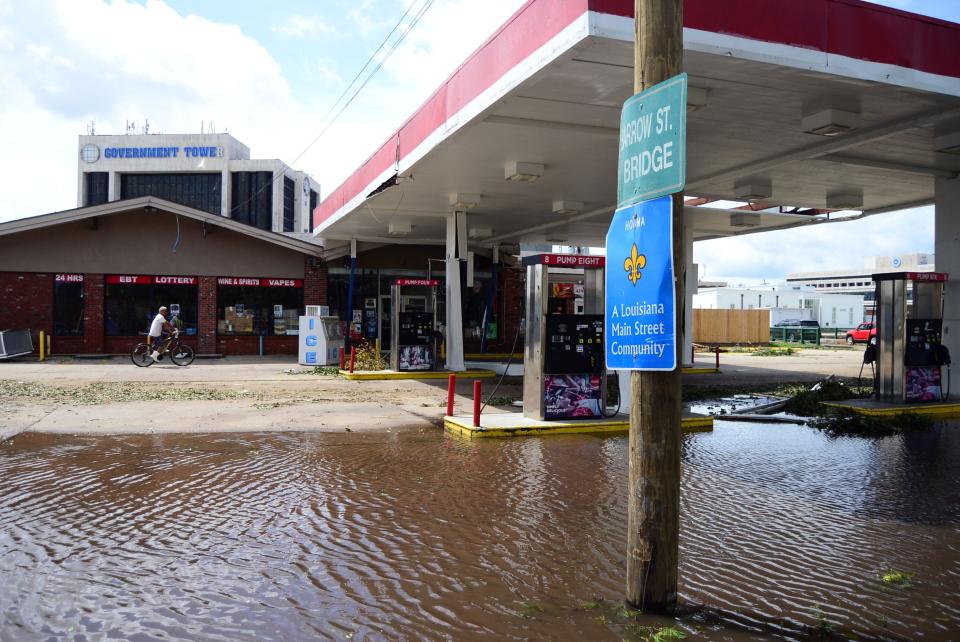Congress demand answers from FEMA for Risk Rating 2.0. FEMA says it is bound by their laws
Lawmakers sent a formal letter asking for answers from FEMA on the inner workings of Risk Rating 2.0, a new measurement system that determines the flood risk of a home on an individual basis.
House Majority Leader Steve Scalise, R-La, and House Committee on Oversight and Accountability Chair James Comer, R-Ky, penned a letter to FEMA requesting documents and communications regarding all calculations and planning for how Risk Rating 2.0 would be implemented. Risk Rating 2.0 took effect April 1, 2021.
The letter was signed by 49 other Congressional members and it was sent to FEMA on May 1. It lays out 13 questions all requesting the inner workings of how flood insurance prices are determined, and what economic impacts the rollout would have on the country.
"The process leading to the rate increases has been less than transparent. Congress has an obligation to ensure that the U.S. flood insurance market is stable and affordable for all Americans and particularly those on a fixed income," the letter reads. "To understand the premium calculations and the overall marketplace, we request certain documents and information. Additionally, we request a staff-level briefing as soon as possible on the effects of the increases on all aspects of the various marketplaces such as the housing market."
Under the new Risk Rating 2.0, FEMA said its goal is equity and to ensure that rates are based on individual risks. Most Lafourche and Terrebonne residents saw an increase in their annual flood premiums. Some saw a decrease.

These increases will be a slow burn, which critics say misleads the public to the total costs; however, the limit to the increase is determined by law to 18% per year. The average total increase to Lafourche will be 321%, and for Terrebonne, 305%. The hardest hit parish is Plaquemines, which will see a 545% increase. These figures were presented to the South Central Industrial Association by Consultant Caitlin Berni.
More: Congressional members meet with stakeholders to discuss energy
More: Louisiana lawmakers advance bill to raise their pay; will teachers get one too?
Over 12,000 Lafourche Parish policyholders saw an increase in their rates from $1-$100, while 350 saw a decrease. Terrebonne Parish had over 14,500 policyholders see a similar increase, while 590 saw a decrease.
Policyholder participation has dropped since Risk Rating 2.0 took effect on April 1, 2022, but the loss of participation preceded the rollout of Risk Rating 2.0, according to figures provided by FEMA. Participation doesn't fully reflect the solvency of the program, said FEMA’s Assistant Administrator of the Federal Insurance Directorate and the senior executive of the National Flood Insurance Program, David Maurstad, because it is dependent on those policyholders' risks.
The program is currently in debt for $20.5 billion to the U.S. Treasury, according to figures cited April 28, when Maurstad went before Congress, April 28. He said that the program is currently burdened with debt that could be used to help make policies more affordable for lower-income families.
The change to the new rating system has bristled many who say FEMA acted of its own accord, and that it may price people out of Terrebonne and Lafourche because they won't be able to afford the costs.
Speaking with The Houma Courier/Daily Comet, Wednesday, Regional Flood Insurance Liaison Gilbert Giron said affordability is a concern of FEMA as well, but their hands are bound by the National Flood Insurance Act of 1968.
"[Affordability] has been a big concern of ours, but the National Flood Act of 1968 requires that the [National Flood Insurance Program] have a financially sound program, not a financially sound affordable program," he said. "Right now we don't do anything on this because we are not allowed to by law. If that was to change… we could incorporate aspects that could take affordability into consideration, but until then, our hands are literally tied."
This article originally appeared on The Courier: Congress demand answers from FEMA. FEMA says it is bound by their laws
